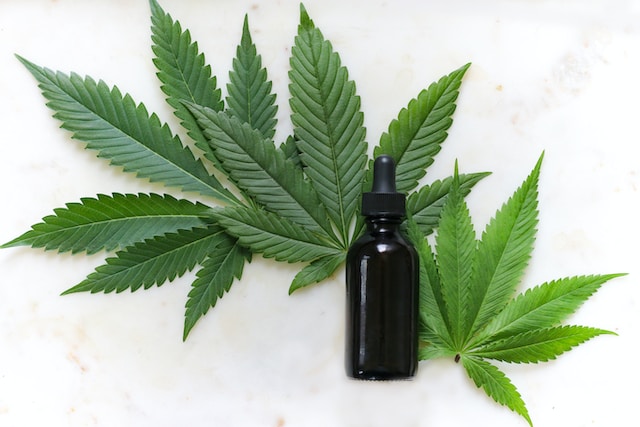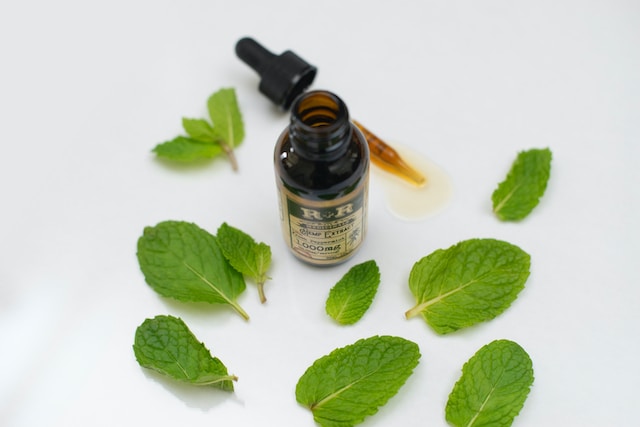Tincture is a liquid herbal preparation made by soaking herbs in alcohol, while an extract is a concentrated form of a substance extracted from a plant or herb.
Tincture

Tincture is a concentrated liquid herbal extract that uses alcohol as the solvent. The process involves soaking plant materials in alcohol for an extended period of time, allowing the active compounds to dissolve and infuse into the liquid.
Extract
Extracts are concentrated forms of plant compounds that have been obtained through various extraction methods. These methods involve using solvents such as alcohol or water to draw out the active ingredients from the plant material. The resulting extract is a potent and highly concentrated form of the plant’s beneficial compounds.
Tincture Vs. Extract – Key differences
Tinctures:
- Made by soaking herbs or plant materials in alcohol or a mixture of alcohol and water.
- Alcohol serves as the solvent to extract the active compounds from the herbs.
- Typically have a lower concentration of active ingredients compared to extracts.
- Often used for medicinal purposes, as a few drops can be added to liquids or taken orally.
Extracts:
- Produced by using solvents (such as alcohol, water, or other chemicals) to extract specific compounds from plants.
- Can have a higher concentration of active ingredients compared to tinctures.
- May use various extraction methods, including solvent extraction, steam distillation, or cold pressing.
- Commonly used in food flavorings, perfumes, and natural health products.
The benefits of tincture
- Concentrated Form: Tinctures are concentrated herbal extracts, allowing for a higher concentration of active compounds compared to other preparations. This makes them potent and effective in delivering therapeutic benefits.
- Quick Absorption: Tinctures are typically taken orally, allowing for rapid absorption of the active constituents into the bloodstream. This enables faster onset of action compared to other forms of herbal preparations.
- Long Shelf Life: Tinctures, particularly alcohol-based ones, have a long shelf life due to the preservative properties of alcohol. They can retain their potency and effectiveness for an extended period, making them convenient for storage and use.
- Dosage Flexibility: Tinctures offer dosage flexibility, as their concentration can be adjusted according to individual needs. This allows for precise dosing and customization to accommodate varying health conditions and individual sensitivities.
- Easy Administration: Tinctures are easy to administer, requiring only a few drops under the tongue or diluted in liquid. This makes them suitable for individuals who have difficulty swallowing pills or capsules.
The benefits of extract
- Concentrated and Targeted: Extracts are highly concentrated forms of specific compounds derived from plants. They are often standardized to contain a specific amount of active ingredients, ensuring consistent potency and efficacy.
- Specific Compound Extraction: Extracts allow for the targeted extraction of specific compounds or active ingredients from plants. This enables the isolation and concentration of desired therapeutic components, making them particularly useful for targeted health applications.
- Versatility in Formulation: Extracts can be formulated into various product forms, such as capsules, tablets, liquids, or powders. This versatility allows for easy integration into different delivery methods, making extracts adaptable to individual preferences and needs.
- Longer Shelf Life: Extracts, especially those with proper stabilization techniques, can have a longer shelf life compared to raw plant materials. This enhances their storage stability and extends their usability without compromising their potency.
- Precise Dosing: Extracts often come with standardized dosage recommendations, providing clear guidance on the appropriate amount to take for desired effects. This allows for more accurate and consistent dosing, ensuring optimal benefits.
Image Credits
Featured Image By – Stefan Rodriguez on Unsplash
Image 1 By – Kimzy Nanney on Unsplash
Image 2 By –








